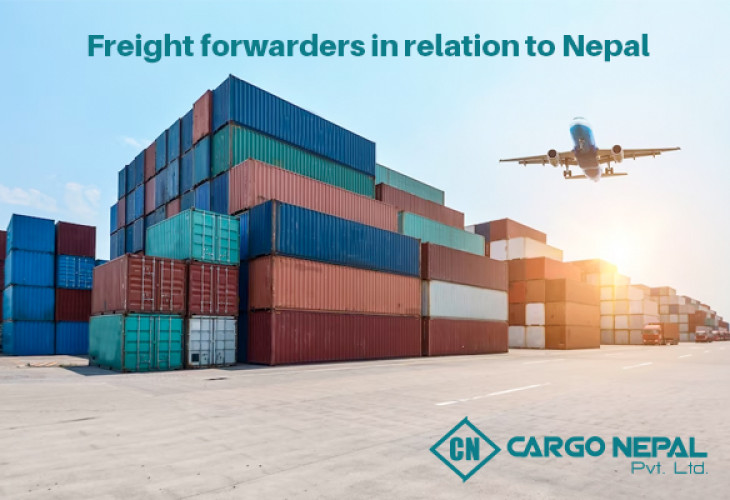- Home
- Blogs
- About
- Services
- Group Companies
- Contact Us
- सुचना *
-
Call Us On:
+977 1 5320150, 5320160 -
Send us a Mail:
info@cargonepal.com.np -

An organization or individual that arranges for the shipping and transportation of products on behalf of shippers or consignees is known as a freight forwarder. A freight forwarder's main responsibility is to plan and oversee the logistics of transporting goods from one location to another, making sure it arrives at its destination efficiently and on schedule. In order to facilitate the flow of goods, freight forwarders coordinate different parts of the supply chain as middlemen in the transportation process.
In order to facilitate the transfer of commodities from one place to another, a freight forwarder is essential, and their duties are especially significant when considering Nepal, a landlocked nation. In the context of Nepal, a freight forwarder's primary duties and obligations are as follows:
Coordination of International Shipping:
Plan and oversee international cargo shipments to and from Nepal.
To guarantee prompt and economical transit, collaborate with shipping companies, airlines, and other providers of transportation services.
Clearance via Customs:
In order to facilitate the efficient entry and exit of products at border crossings, handle customs paperwork and clearance procedures.
Keep abreast of customs laws and practices to make compliance easier.
Record-keeping and Paperwork:
Assemble and oversee the preparation of the required paperwork, such as packing lists, invoices, bills of lading, and certificates of origin.
Make sure that all documentation is correct and conforms to Nepalese and international laws.
Cargo Protection:
Give clients advice and help them get the right cargo insurance to guard against damage or loss while in transit.
Management of Transportation:
Organize trucks and rail services for inland transportation within Nepal to transfer commodities from ports of entry to their final destinations.
Distribution and Storage:
If necessary, offer goods warehousing and distribution services to enable storage and subsequent shipment within Nepal.
Supply Chain Transparency
Provide customers with real-time shipment tracking and visibility so they can stay updated on the whereabouts and status of their items during the transportation process.
Risk Management:
Identify and mitigate potential risks associated with transportation, such as delays, damages, or regulatory issues.
Cost Management:
Negotiate and secure competitive rates with carriers and service providers to optimize transportation costs.
Customer Service:
Provide excellent customer service by addressing inquiries, resolving issues, and keeping clients informed about the progress of their shipments.
Compliance and Regulatory Adherence:
Stay informed about changes in international trade regulations and ensure that shipments comply with all relevant laws and regulations.
Advisory Services:
Offer advice to clients on the most efficient and cost-effective transportation methods, considering factors such as shipping routes, modes of transport, and potential challenges.
Problem Resolution:
Quickly address and resolve any issues or disruptions that may arise during the transportation process, minimizing delays and ensuring smooth operations.
In the context of Nepal being landlocked, freight forwarders play a vital role in overcoming logistical challenges and facilitating international trade by providing comprehensive and efficient logistics solutions.